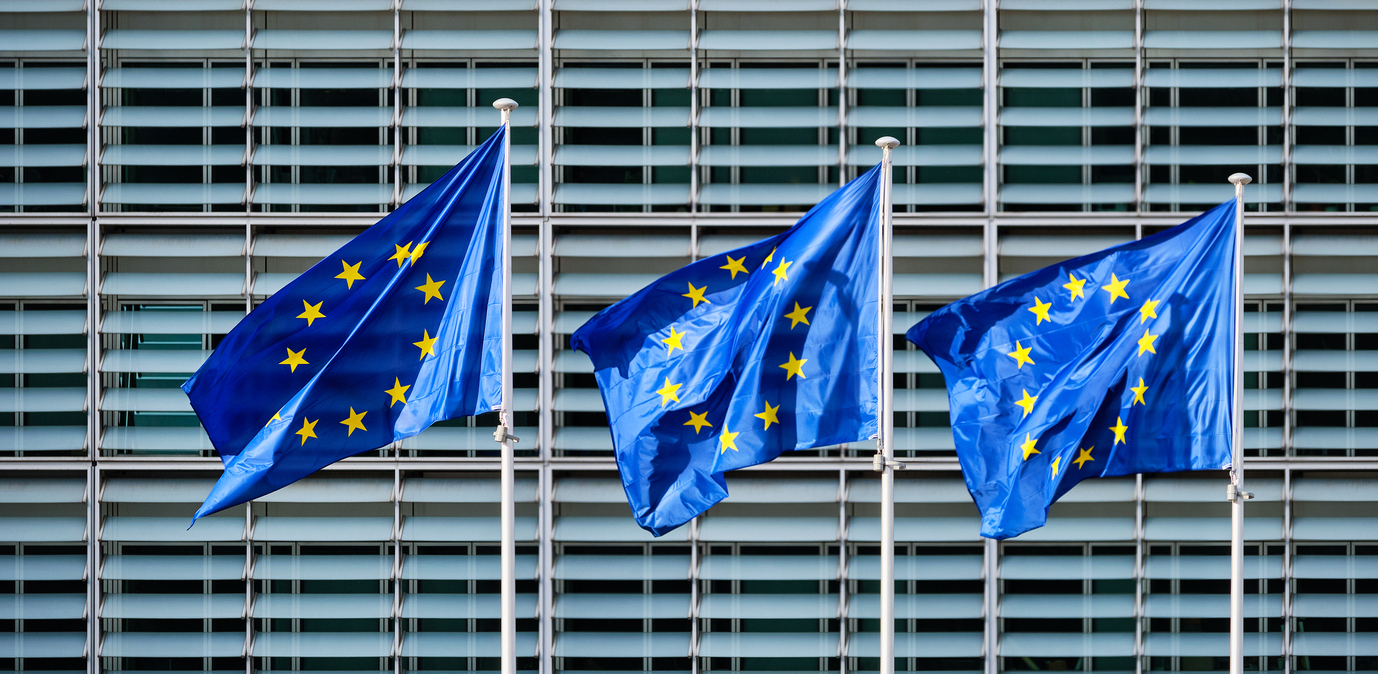Five things to know about the European Competition Toolbox
by Inline Policy on 21 Sep 2020
An evergreen priority for the European Commission, competition policy has shifted into the active stages of policymaking. It is at the top of many agendas, and the globally interconnected tech sector is increasingly a priority in competition regulation. Here are five aspects of competition reform to watch right now.
1. Priorities of a new European Commission...
Momentum on competition policy has increased with a new European Commission (EC) in place. In her mission letter to Competition Commissioner Margrethe Vestager, Commission President Ursula von der Leyen instructed Vestager to strengthen competition enforcement and to review competition rules, identifying new tools to address market distortions. The next three Member States leading the Council of the EU - Germany, Slovenia, and Portugal - have endorsed the evaluation and modernisation of the European competition policy framework.
Some fragmentation can be expected as Member States rarely endorse monolithic policymaking on important issues. Since the Commission blocked a major rail company merger in 2019, Member States including Germany, France, Italy, and Poland have called on the EU to modernise its approach to merger control, citing the need for flexibility to compete with foreign firms which benefit from state backing or subsidies. They also called for improvements to regulating the unique market conditions in the digital sector. Other countries have resisted this perceived “softening” of competition law, urging the Commission to maintain independent enforcement tools to ensure global competitiveness for European industry rather than loosening or “politicising” merger control rules.
2. ...and priorities put into action at the EC
Over the summer the EC consulted on a future Digital Services Act, a new legislative framework to regulate the digital economy. DSA includes two new potential tools of EU competition policy: an ex ante regulatory framework would set rules for large platforms; and a new mechanism would prevent markets tipping into incontestability. This is when new firms cannot enter a market due to high entry barriers or dominance by a single firm. These consultations are the first step in a regulatory process that could prevent the creation and preservation of dominant, gatekeeping players, especially in the digital space.
The EC is reviewing regulations expiring in 2022 that outline the circumstances under which horizontal or vertical agreements between competitors would not violate EU antitrust rules. An evaluation of the Horizontal Block Exemption Regulations will be published in 2021, alongside a public consultation on any revision proposal. The Commission reviewed the Vertical Block Exemption Regulation (VBER) in 2019, and published an evaluation this summer that found the VBER is useful but not as relevant to rapidly changing online markets and distribution systems, with e-commerce having undergone massive growth and change in the decade since VBER was last modified. The Commission now plans to revise VBER before its expiry in 2022, improving its applicability to digital markets.
The Commission has also launched a sector inquiry into the Internet of Things sector, which is likely to be subject to large network effects due to the control of user data involved in IoT products. In other words, a few actors who control a lot of user data could become dominant, making it difficult or impossible for new actors to enter the market. The inquiry could lay the groundwork for antitrust investigations of specific cases in this sector.
3. Judicial developments
Not all activity on competition this year has pointed to stricter oversight. In May 2020, the General Court of the EU Court of Justice overturned a 2016 decision by the European Commission to block the merger between UK telecom companies Three and O2. The Court said the Commission had not proved that the merger would result in higher prices and consumer harm. Though the Commission has appealed, the decision leaves a question mark over the Commission’s merger evaluation process, and could ease scrutiny over future consolidation.
In July, the General Court deflated the bubble of the Commission’s competition assessments further when it overturned a Commission ruling that tax benefits for Apple in Ireland constituted anticompetitive state aid. The Commission could appeal this judgement, but in the meantime this and other challenges to its tax break-related state aid rulings may dampen its enthusiasm for this method of competition law enforcement.
4. Brexit
With the end of the Brexit transition period looming, one of the region’s largest economies will no longer be covered by European competition rules. The UK Competition and Markets Authority (CMA) will take on a wider set of responsibilities, including greater merger review authority. But it will only enforce UK law, rather than the compendium of European competition rules. In a further pivot from the EU, the CMA has agreed to work closely with the competition authorities of Australia, Canada, New Zealand, and the United States on individual investigations and to exchange more information on developments in competition law, seeking to better capture cross-border market issues.
At the same time as enforcement mechanisms shift in the UK, ensuring a level playing field of business competition is one of the thorniest issues under negotiation by the EU and UK in talks on their future relationship. The UK seeks to establish and preserve regulatory autonomy, while the EU is pushing against the possibility of state aid that would undermine competition in UK-EU trade. While any deal will include barriers to trade that did not exist when the UK was part of the European Single Market, the contours of a “level playing field” agreement will determine the conditions of cross-Channel competition.
5. Coronavirus
The extraordinary disruption of the COVID-19 pandemic and ensuing economic crisis has prompted massive government assistance programmes to businesses. While the impact on competition is hard to quantify, there are several stressors to open and fair competition. Soon after the onset of the pandemic, the European Commission published its Temporary Framework for state aid measures that outlined acceptable support measures by governments for businesses under stress.
European governments have doled out aid to varying degrees, including some direct bailouts and recapitalisation measures that would draw heavy scrutiny in ordinary times. The EU is also developing an extraordinary budget supplement of € 750 billion to support recovery, with investments meant to accelerate technological adaptation across Member State economies. While exceptional state aid rules are temporary, the scale of economic need and government support will have an impact on competition for years. Additionally, the variance in support capacity across national governments may leave businesses in some countries at a disadvantage as their governments are less able or willing to provide support than those in other countries.
In the digital sector, the global tech giants have thrived during the pandemic as much economic and social activity moved online, digital services were deemed essential, and many smaller competitors have struggled to stay afloat. How much additional market share, workforce talent, and leverage against governments’ regulatory efforts these giants will gain throughout the crisis remains to be seen, but the pandemic’s impact on the tech sector will no doubt be felt for years.
Looking forward
Despite the disruption of the pandemic, work on competition rules continues, with the EC’s reveal of the proposed Digital Services Act planned for December 2020. Regulators have stepped beyond case-by-case competition enforcement. They now stand ready to create a new balance between the enormous advantages technology and digital markets bring to consumers and the benefit of securing competitive, well-functioning markets.
Topics: Competition policy






Comments